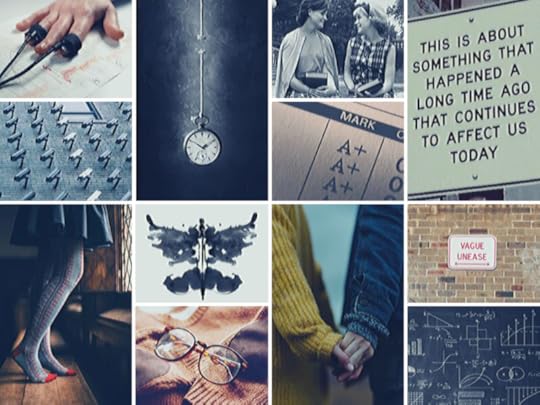What do you think?
Rate this book


336 pages, ebook
First published November 27, 2018

I’d even tried to write what were called “stories”—following the pattern of the Nine Basic Plots we were provided, along with vocabulary lists and recommended titles. We were not allowed to take books out of the public library marked A—for Adult; we were restricted to YA, Young Adult, which had to be approved by the Youth Entertainment Board, and were really suitable for grade school. My parents had had Adult Books at one time, but I had never seen them.
There had been only a few DASTADs—Disciplinary Actions Securing Threats Against Democracy—taken against Pennsboro students in recent years, and these students had all been boys in category ST3 or below. (The highest ST—SkinTone—category was 1: “Caucasian.”

Billy Corgan, The Smashing Pumpkins, Bullet with Butterfly Wings: Despite all my rage, I am still just a rat in a cage / And someone will say, "What is lost can never be saved."
"America is founded upon amnesia—denial."
"Yet it seemed mysterious to me, that there was, in Zone 9, so much freedom—that, in Zone 9, did not feel like freedom."
"Exile means you can't free your mind to think of anything except Exile. While others never question the terms of their existence you question the terms of your existence constantly. Why am I here, when will I be taken from here, who is watching me, who is monitoring me, is it this person who invites me to trust her? What will she report of me? What will be the summary and the judgment?"
". . . human situations were analogous to psychological experiments. . . . The more detailed and "objective" the description of the subject's behavior, the less the experimenter was likely to know what was happening; for one could not infer an inner life, a subjective mode of being, from mere observation. Inevitably, living things were perceived (from the outside) as resembling clockwork mechanism. You wanted to protest—But I am me! I am unique and ungraspable."
"We are what we are made to be—we must only not resist."
"But now, we can see the clouds approaching, we can see into the distance and so, in a sense, we can see into the future."
"As if to prompt me, he said: 'As a dreamer doesn’t know she is dreaming, so you can't know your circumstances.'"
"For life is now. Life is not thinking, not reflective or backward-glancing; life is forward-plunging; life is the present moment as . . . it is always now."
"I felt like a soft, winged thing, a moth that has been batted out of the air. Not hard enough to break its wings, but hard enough to knock it stunned to earth, and the wings slow-moving, wounded and mute in wonderment."